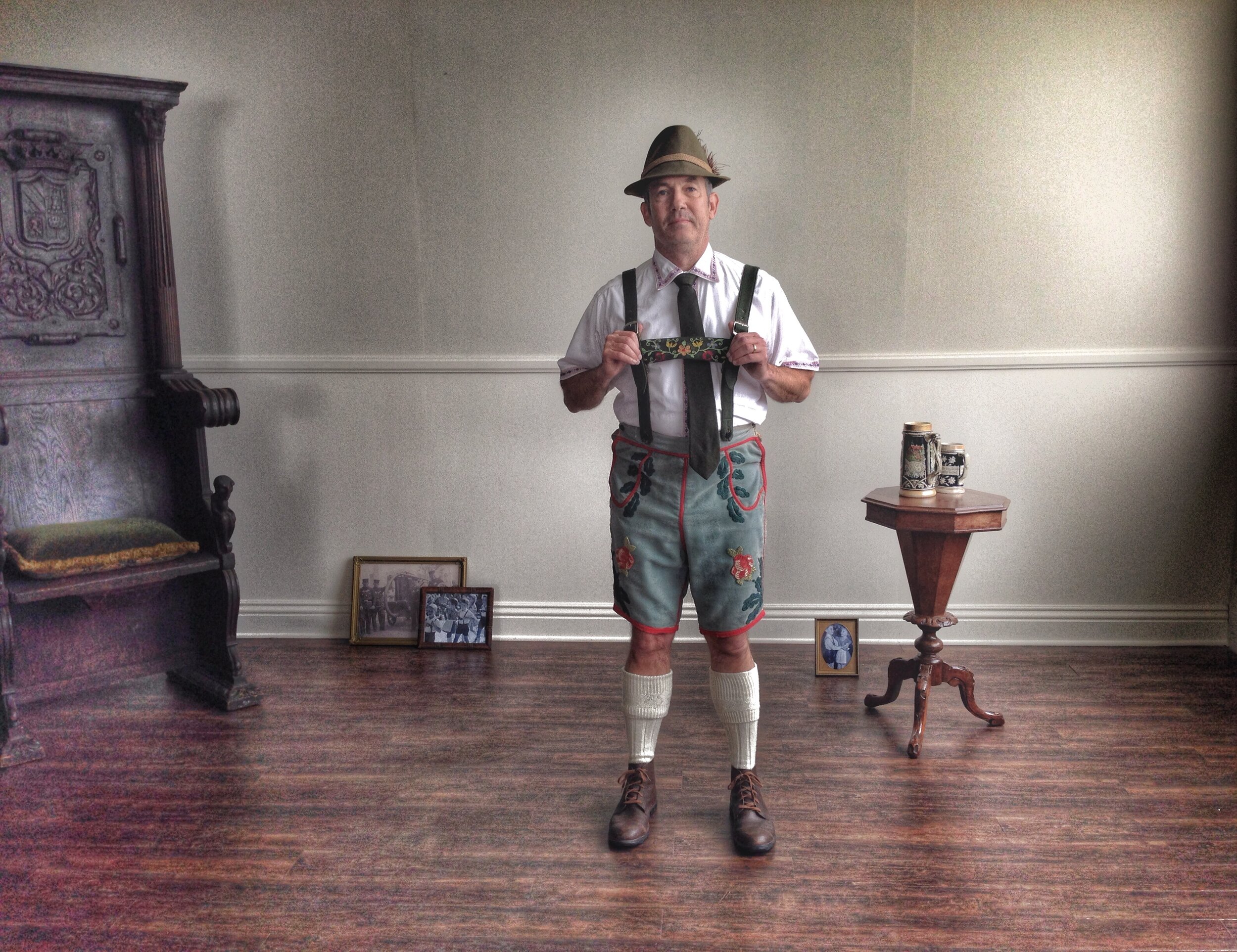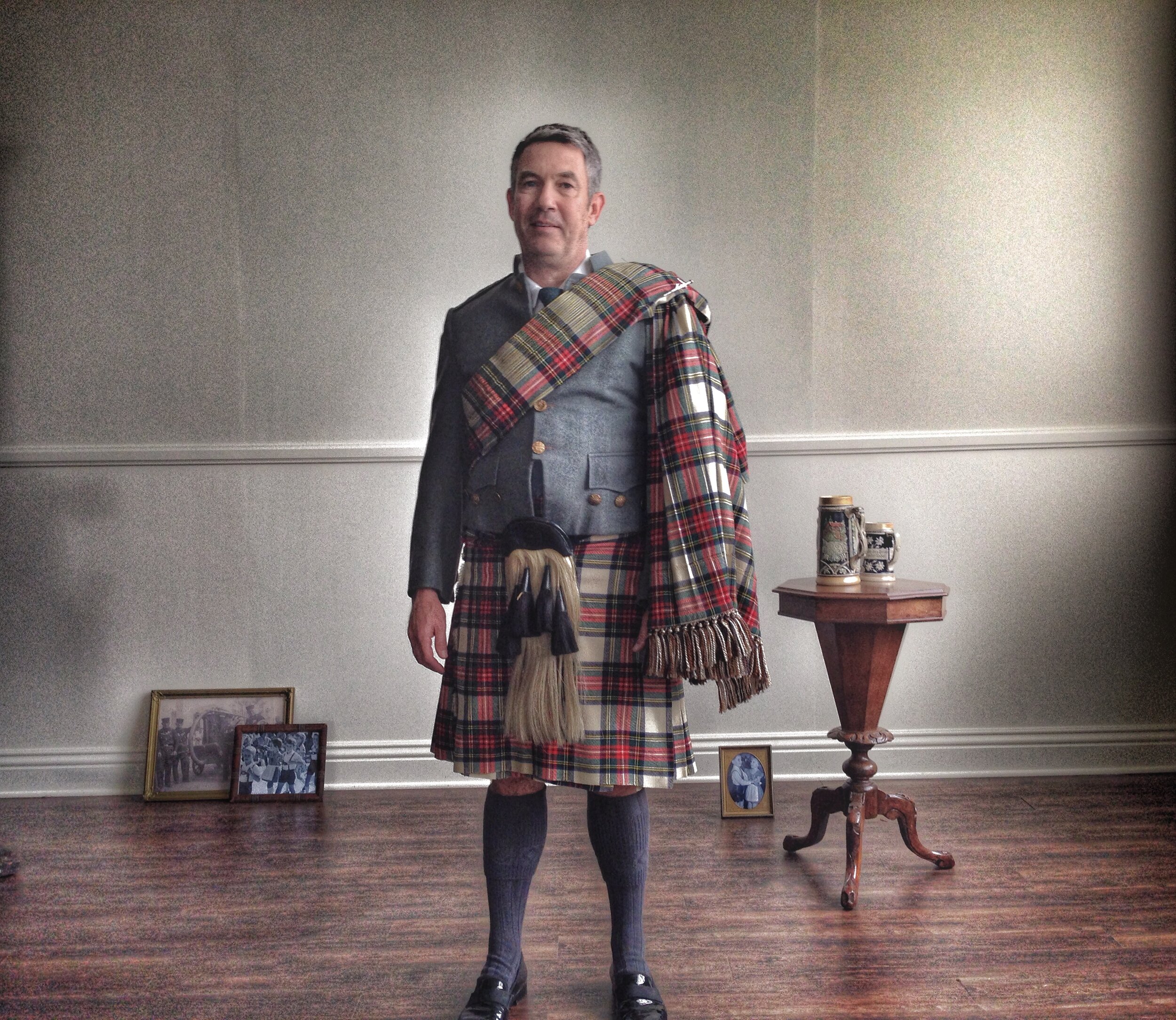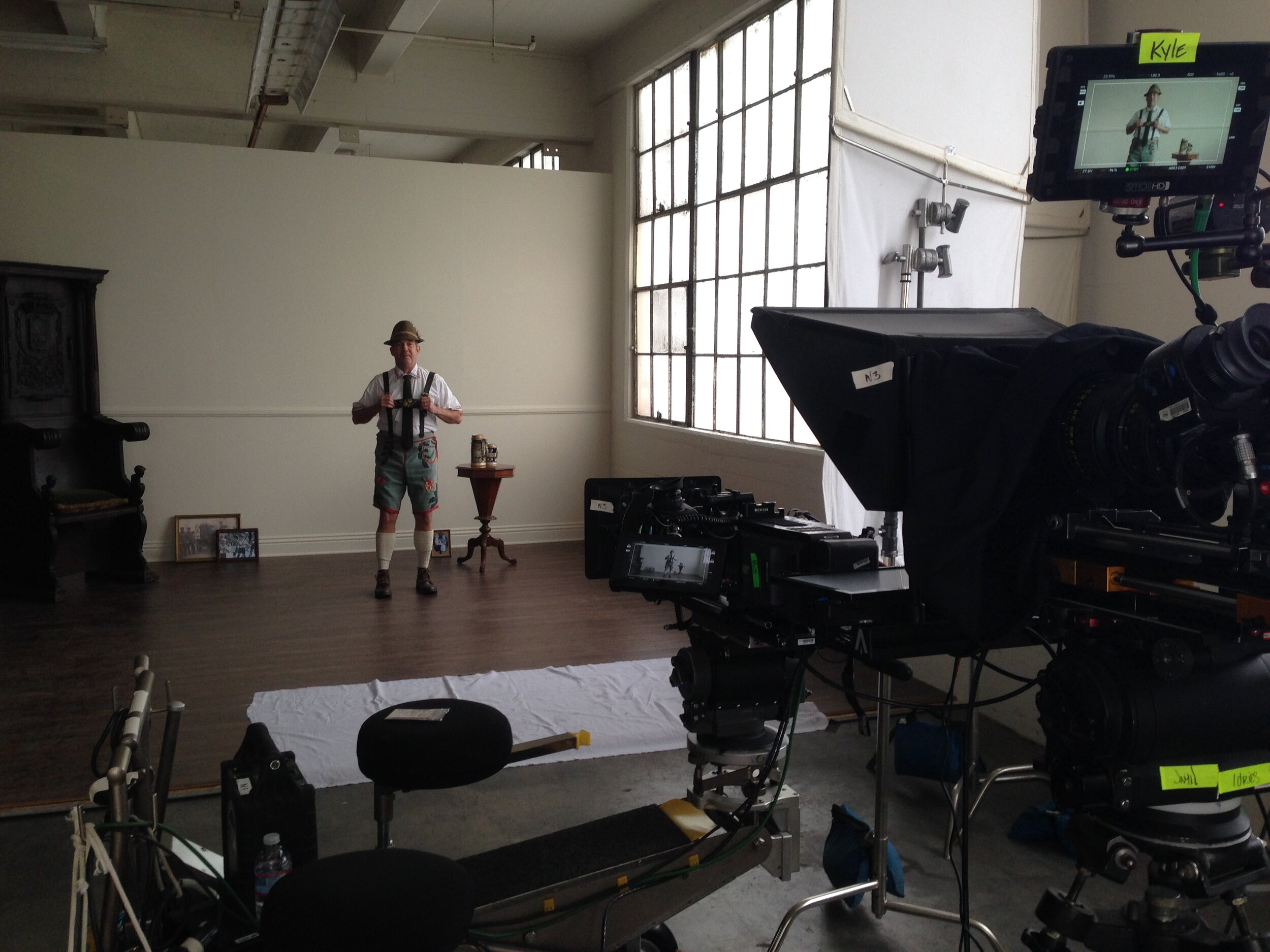When I went to San Francisco for the first time I found this cool wall decoration that said, “Do Not Give Up.” It’s kinda “industrial chic” décor. Its appearance resembles a triangle traffic sign. “Do Not” being a hard underline, and underneath it “Give Up”. “Dept of Transportation” above that. At twenty-three, wide-eyed and brimming with a naivety that had only slightly been tainted: I bought it on the spot, and I’ve cherished it since.
Do Not
GIVE UP
I moved into a new apartment over a year ago and now instead of proudly hanging on the wall… it’s buried in my utility closet. Mostly because my walls are problematic and the sign itself doesn’t play well with others. And yet...
Do Not
GIVE UP
It resonates with you, doesn’t it?
As performers in this industry, these are words of creed.
They are magic words.
We repeat them to overcome adversity. We silently whisper this to ourselves before going into the audition room, at 1 A.M while folding silverware at our survival job, after getting cut at a callback, being stuck in an uptown subway car during rush hour while a man relieves himself next to you — to keep pushing. To remind. Often quiet, other times loud. Sometimes filled with prayer. Sometimes with venom.
I believe in them too, these magic words. But lately…. the magic is hard to come by.
Sometimes I fear it’s absconded. Plucked from the heavens and gone overnight.
I’m entering into a new era of my life where I have to leave some things behind, and I’ve been grappling with this idea… or this concept that a part of me has died and I need to bury him, in order to move on. Truth be told, it hasn’t been the first time I’ve done this. Not my first burial. But this particular part of me I’m trying to bury is the part of me that’s kept me going all these years. The one responsible for starting it all. That part of you where your hopes, dreams and aspirations originated. A former you. The most sacrosanct of you. Pretty much the kind of you where, should you even think about laying it down to rest, you would surely and most utterly implode and cease to exist.
So what to do when that part of you…. that you’re looking to let go, is the one who’s lead you here in the first place? And who are you without them, if not anyone? And also… if you’re not bringing them with you then where the fuck are you going without them?
It’s time to solve the riddle and face it, instead of resisting it. Instead of conjuring an old arcanum that’s no longer working.
Do Not
GIVE UP
Performing is my life and always has been. To the point where I’ve gotten really good at lying to myself, pretending that it’s not (it is). I know I’m not alone and I’m not being dramatic when I say that I feel closest to God, the universe, and everything when I’m on stage surrounded by really hot lights sweating my ass off in a dark room full of strangers. I still consider myself lucky enough to even be pursuing this professionally and feel grateful for what I have achieved (even if I have to convince myself I’ve actually made achievements). But even before the tragedy of COVID…. I felt stale. Burnt out. I know others feel this way and they often joke about giving up and doing something else.
Do Not
GIVE UP
Artists fantasize about that “giving up” like it’s something they can’t have, or can’t do. Because what or who would you be without your suffering? Without the “grind?” Without everything you’ve done to get to where you are today? I didn’t really ever stop to ask myself whether or not people were merely joking. Or if they even knew they weren’t joking and really meant it. Or if they could even do that. But most importantly, I was discovering I might be one of those people who weren’t joking. You entertain this thought for a moment. But then, of course, you say those “magic words” and fall right back in line.
But I still found myself wanting to diverge. Joy had evaded me at every turn. “What’s wrong with me?” I asked. I started feeling like I wanted to do something else, or just needed a change, anything. But I refused to let myself do that. I refused to consider the possibility that pursuing my career wasn’t making me happy. I deceived myself into false security and at every moment my magic was failing me. I told myself that I needed to stop thinking negatively, and keep pushing.
Push.
Push.
But for the first time, I asked myself: Why?
As in, “Why am I denying myself the true feelings I was having and trying to take steps to correct them?”
Why couldn’t I allow myself to even question what I was doing?
I refused to give into any idea that did not perpetuate the career I envisioned for myself. I didn’t want to entertain the thought of deviating from doing what I loved, even if it was killing me and not reciprocating anything in return.
Magic is a fickle process. I do believe that as performers we subscribe to it, and we really are super-human. We make the impossible, possible. But as one of my favorite guilty pleasure TV show characters would say…. All magic comes with a price. The act of conjuring (we’re dropping the metaphor now kids) or pushing yourself to places, people, things, jobs, sacrifices that don’t serve you will result in being completely spent with not a trace of yourself left. And you’ll be left wondering whether or not you should be giving up.
But you don’t. You don’t need to give anything up. And where you’re going hasn’t changed.
It really is both. You can be tired and unfulfilled and choose another path when you get to the next fork in the road. Or you can press on and cling to every faculty of faith you have with you, as long as it’s not killing you in the process. But the proverbial woods are the same. I really do think your destination will always be what you had envisioned, even if the paths you took or the methods you used to get there were not what you foresaw at the beginning.
But without a shadow of a doubt, at some point, you’ll need new spells.
New magic.
A different kind of magic. Not a headstrong magic. Not a beat the scene into a dead horse kind of magic, but a more skillful and eloquent magic. Less energy to cast it and less incantation to pull it off.
At the beginning of my journey I made a solemn promise that I would only continue, that I would only pursue being a performer if I could remain happy. That it was more important for me as an individual to make sure I was sacrificing, struggling and persisting out of love and necessity, and not out of obligation. And when tested, and in the throws of doubt, I would reevaluate and find a way forward. Sometimes this doesn’t fit within the narrative we’re sold, that it’s either all or nothing in order to reach the end game.
I feel as though there is this stigma about being a performer. That if you’re not “doing it” then you aren’t a performer. Or if you aren’t working professionally, then you’re not really working. And as much as I believed I couldn’t be affected by it: here it was completely tearing me apart from the inside. Somewhere along the way I bought it. And while I’m (maybe) comfortable admitting that I’ve fallen prey, I’m also going to say that it’s simply not true. The stigma of a non-working performer is no performer at all: is a lie, and only seeks to destroy the nature of what it means to be a storyteller. I really thought being stubborn, adamant and relying on a fabled “iron-will” would get me through almost anything, but life is a marathon and a half, isn’t it? Endurance can only get us so far.
The idea of new magic has welcomed the possibility of new solutions, or really just dialogues with myself I wasn’t able to have before. It’s a process and I’m still figuring it out.
I’m starting to feel like I’m in a position where I’m not restricting myself as much, or my sense of self rather. I no longer feel the need to cultivate plans laid before me that I created a long time ago, that don’t even fit who or where I am now. I’m starting to feel empowerment for creating a path in my life that works only for me. That may or may not lead me to the original thought of where I was going. And not apologizing about it. Or explaining it. Or justifying it. To anyone.
My magic. New magic.
There’s no benefit to live by a projected version of you that was made a long time ago, or a version of you that was created under different life circumstances.
There’s no future in re-using magic that has become stale and old.
Our magic is sacred. We have to protect it. It’s the fire inside of us that keeps us inspired, and creative. And when it’s no longer working: we have to make new spells. Recite new incantations.
We have to make new magic. Otherwise we’ll trick ourselves into thinking that there was never any magic in the first place.
And we all know that’s fucking bullshit.
Nick Imperato is an actor, writer, and storyteller. His recent escapades include running amok in Tony n Tina’s Wedding, as well as participating in New Ambassadors Theatre Company’s ongoing Play Development Labs. You may also find him in his other natural habitats, which include trying to assassinate himself at the gym, tinkering with video game consoles, and cooking a really mean risotto. https://www.nickimperato.com
G&E In Motion does not necessarily agree with the opinions of our guest bloggers. That would be boring and counterproductive. We have simply found the author’s thoughts to be interesting, intelligent, unique, insightful, and/or important. We may not agree on the words but we surely agree on their right to express them and proudly present this platform as a means to do so.

































